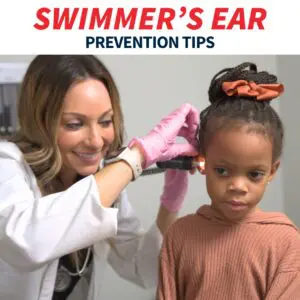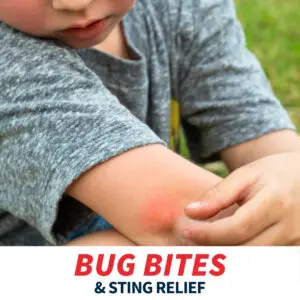Immunization Awareness Month
 Living a healthy lifestyle is important, from a balanced diet to physical activity. Of course, no matter how you live, it doesn’t do much good if your body is not protected from dangerous illnesses from the inside. Thankfully, there’s an easy way to give ourselves an extra boost of protection with immunizations. This National Immunization Awareness Month, we celebrate the development of life-saving vaccines and highlight the importance of them for individuals of all ages.
Living a healthy lifestyle is important, from a balanced diet to physical activity. Of course, no matter how you live, it doesn’t do much good if your body is not protected from dangerous illnesses from the inside. Thankfully, there’s an easy way to give ourselves an extra boost of protection with immunizations. This National Immunization Awareness Month, we celebrate the development of life-saving vaccines and highlight the importance of them for individuals of all ages.
Early Vaccination Development & History
People have been trying to protect themselves and others from dangerous diseases for centuries. Some sources state that inoculation (or vaccination) began as early as 200 BCE. A Chinese emperor in the late 1600s had his children inoculated against smallpox by grinding up smallpox scabs that were then blown into the nostril. Another method was to scratch particles from a smallpox sore directly into the skin. Some countries later began using variolation to protect against disease, which essentially is injecting some of the disease directly into a vein.
Research and development was performed for hundreds of years in an attempt to end large-scale illness and death, and a man named Edward Jenner helped create vaccinations through an association between cowpox and smallpox. Thanks to his work, mortality due to smallpox dropped from 18,447 in the decade prior to vaccination to 7,858 from 1810 to 1820. The first vaccinations were performed in the U.S. by Dr. Benjamin Waterhouse in 1800 on his own children. Thankfully, much development has occurred since to make vaccines safe and more effective, almost eradicating many of the deadly illnesses from centuries past. Unfortunately, with a surge in anti-vaccination support, diseases like measles, mumps, and rubella are returning, making protection, education, and awareness of vaccines more important than ever.
Importance of Vaccines
The top reason to receive recommended vaccines is, of course, to protect yourself and others against preventable diseases. Vaccines help our bodies fight against illnesses like whooping cough, flu, measles, certain cancers, meningitis, tetanus, diphtheria, shingles, pneumonia, and more. Ensuring you are up-to-date on immunizations also helps protect others who are unable to get vaccinated due to age or health-related reasons, such as during cancer treatments.
Vaccines have also been extensively studied and shown to be safe when received at the recommended times. Being timely with vaccines helps by providing immunity before likely exposure to the disease. Also, while many of the diseases are thought to be eradicated thanks to vaccines, they do still exist in the world and present a health threat, so protection through vaccination is the safest choice.
There is a lot to know about getting vaccinated and making sure you and your family are protected. The CDC offers great tools to help, including a vaccine guide for your children and a handy assessment tool for adult vaccines to determine if you may be missing important protection.




